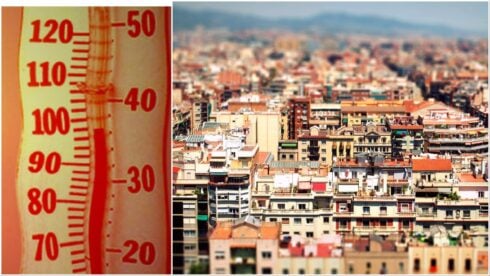The debate over gas stoves has reignited in recent weeks after the burning topic was brought to the boil in the US in recent weeks.
They have come under fire as Republicans and regulators across the pond clash over the potential health risks posed by these common appliances.
But is this just a political power play or are gas stoves actually a serious threat to public health?
Well, scientists have been sounding the alarm on gas stoves for decades.
“It’s a pretty long-standing literature spanning at least 40 or 50 years,” said Jon Levy, an environmental health researcher at Boston University.
Studies have shown that gas stoves emit pollutants that can cause asthma, raise the risk of diabetes, and even increase the chances of getting cancer.
A recent study even found that roughly 12 percent of all childhood asthma cases may be attributed to gas stoves.

But this isn’t the first time regulators have taken a closer look at gas stoves.
Back in 1985, the U.S. Consumer Product Safety Commission raised concerns to the Environmental Protection Agency, citing studies that found unvented gas cooking can cause nitrogen dioxide levels to exceed outdoor standards.
And in recent years, several U.S. cities have banned gas stoves in new construction, with California leading the charge.
Back in Spain, the demand for natural gas reached 375 terawatts per hour in 2021, up on every year for the past ten years apart from 2019.
So, what’s the problem with gas stoves? They work by combustion, igniting natural gas to produce heat.
But that chemical reaction also produces pollutants that you can’t see or smell, like PM2.5 particles and carbon monoxide.
And these pollutants can harm your health in various ways.
The bottom line is that gas stoves have been on the radar of scientists and regulators for decades.
And while a ban may not be on the table just yet, it’s clear that the health risks posed by these appliances are not to be ignored.
So, the next time you fire up the stove to cook dinner, you might want to think twice.
READ MORE:
- Sick patients in Spain struggling to pay power bills for life-saving oxygen machines
- Valencia is Spain’s most expensive city for water bills
Click here to read more Health News from The Olive Press.








